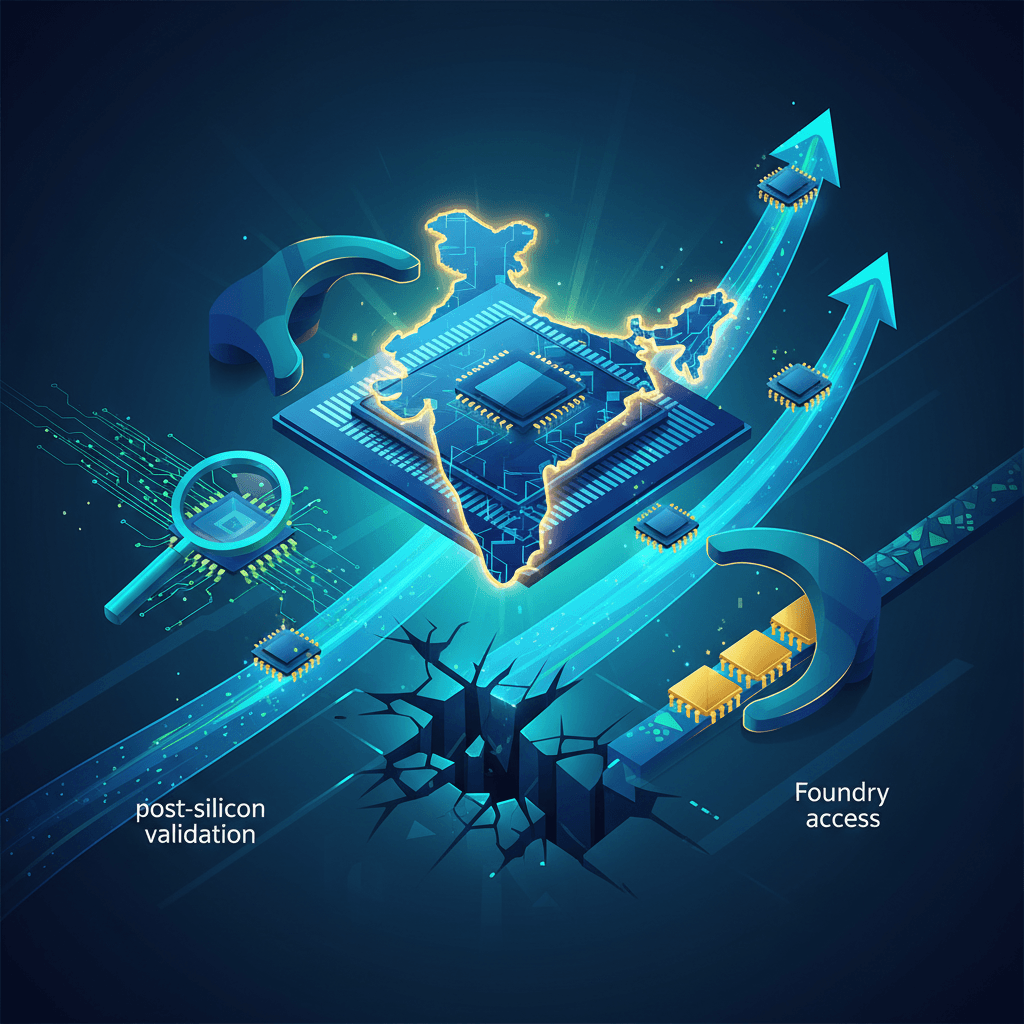SmartSoC, C-DAC unlock India's AI chip potential with free validation, foundry access.
This public-private partnership offers Indian semiconductor startups crucial free validation and foundry access, accelerating indigenous AI chip development.
October 16, 2025

In a significant move to bolster India's burgeoning semiconductor ecosystem, Bengaluru-based SmartSoC Solutions has partnered with the Centre for Development of Advanced Computing's (C-DAC) ChipIN Centre. This strategic collaboration, operating under the government's Design Linked Incentive (DLI) scheme, will provide crucial support to semiconductor startups by offering pro-bono access to advanced post-silicon validation services and a variety of semiconductor foundry options. The initiative aims to de-risk and accelerate the journey from chip design to commercially viable product for the next wave of Indian deep-tech entrepreneurs, directly addressing some of the most formidable challenges in the hardware space. By lowering the barriers to entry, this public-private partnership is set to empower startups, particularly those developing specialized chips for the artificial intelligence sector, and further solidifies India's ambitions of becoming a self-reliant global semiconductor hub.
The path from a digital design to a functional silicon chip is fraught with complexity and immense financial risk, creating a high barrier to entry for startups and small to medium-sized enterprises. One of the most critical and capital-intensive stages is post-silicon validation, the process of rigorously testing a physical prototype to ensure it performs as intended under real-world conditions.[1][2] This phase often uncovers subtle bugs and performance issues that are impossible to detect in pre-silicon simulations.[2] For startups, the cost of accessing the sophisticated lab equipment and engineering expertise required for this validation can be prohibitive. Furthermore, securing manufacturing slots with semiconductor foundries, or "fabs," presents another significant hurdle, with limited access and high costs being major obstacles for early-stage companies.[3] These challenges have traditionally slowed innovation and made it difficult for Indian startups to compete on a global scale, despite the nation possessing a vast pool of chip design talent.[3] This new partnership directly confronts these issues by leveraging the strengths of a private industry leader and a government-backed institution.
Under the agreement, SmartSoC, a company with deep expertise in end-to-end semiconductor engineering services, will provide startups registered with the DLI scheme access to its state-of-the-art labs and engineering support for post-silicon validation at no cost.[4][3][5] This allows fledgling companies to test their silicon prototypes against stringent functional, performance, and electrical benchmarks, ensuring compliance with international standards before committing to costly mass production.[5] In addition to validation, the collaboration opens doors to multiple foundry options, giving startups the flexibility to choose a manufacturing partner that best suits their chip's specific technology and cost requirements.[4][5] This is a crucial advantage, as different applications, from IoT devices to high-performance AI accelerators, have unique fabrication needs. C-DAC's ChipIN Centre, which serves as the nodal agency for the DLI scheme, provides the foundational infrastructure, including access to expensive Electronic Design Automation (EDA) tools and intellectual property (IP) cores, creating a powerful, synergistic ecosystem for these startups.[5][6]
The implications of this initiative for India's growing AI industry are particularly profound. The global demand for specialized AI chips—such as accelerators, processors for edge computing, and high-performance computing (HPC) SoCs—is surging. The DLI scheme has already catalyzed innovation in this area, with several supported startups actively developing AI-focused processors.[3][7] However, the complexity of these AI chips makes post-silicon validation even more critical. Minor flaws can lead to significant performance degradation or system failures in computationally intensive AI workloads.[1] By providing access to world-class validation facilities, the SmartSoC and C-DAC partnership empowers Indian AI chip startups to ensure the reliability and performance of their designs, a key factor in gaining customer trust and market adoption.[1] This rigorous testing is essential for chips intended for critical applications in sectors like automotive, aerospace, and data centers, where reliability is non-negotiable. The initiative effectively levels the playing field, enabling Indian startups to develop and prove the robustness of their AI silicon, fostering indigenous innovation that is crucial for the country's technological self-reliance.
Ultimately, this collaboration between SmartSoC and the ChipIN Centre is a vital component of India's larger national strategy to establish a comprehensive semiconductor value chain. It aligns perfectly with the goals of the India Semiconductor Mission and the "Atmanirbhar Bharat" (Self-Reliant India) vision, which aim to reduce dependency on imports and cultivate domestic intellectual property.[3] By nurturing fabless design startups, the DLI scheme and partnerships like this one are fostering a vibrant, ground-up innovation culture. This approach complements the government's larger-scale efforts to attract global players to establish manufacturing facilities in the country. By solving the immediate, practical challenges of validation and foundry access, this initiative helps ensure a steady pipeline of innovative, market-ready "Designed in India" chips, accelerating the nation's journey toward becoming a formidable force in the global semiconductor and artificial intelligence landscapes.